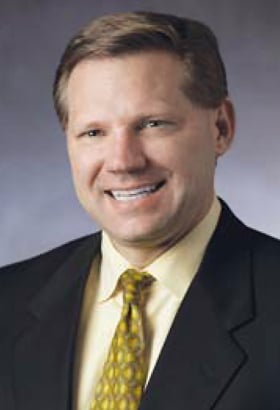Securities America Inc. was dealt a costly legal blow on New Year's Eve when a Finra arbitration panel awarded almost $1.2 million in damages and legal fees to a client who sued the firm and a broker over the sale of private placements that regulators have alleged were fraudulent.
The award, from three Financial Industry Regulatory Authority Inc. arbitrators, included compensatory damages of $734,000 and punitive damages of $250,000, plus attorney and expert witness fees of $171,000. The claimant, Josephine Wayman, also sued Randall Ray Talbott, a Newport Beach, Calif.-based rep, who is also liable for the award, according to the arbitrators' decision, which was filed with Finra Dec. 31.
Punitive damages are uncommon in Finra arbitration awards.
“This is a powerful win for the claimants,” said Scott Silver, a plaintiff's attorney who represents more than 100 clients in similar arbitration claims seeking more than $35 million in damages against Securities America. The punitive damages in this award shows that the three arbitrators were “shocked” by Securities America's action involving Medical Capital notes, Mr. Silver said.
According to his profile on Finra's BrokerCheck system, Mr. Talbott has 11 other pending customer disputes involving the sale of Medical Capital notes, but he is not named as a defendant in many of the arbitration cases. When asked about the award, Mr. Talbott said, “I don't know anything about it.” He added that the matter was “very unfortunate."
Securities America could be on the hook for millions of dollars more in legal damages involving the sale of private placements before the market collapse of 2008. The securities divisions of Massachusetts and Montana are also suing the firm.
Securities America has tried to pin blame for the losses on Medical Capital Holdings Inc., the issuer of the private placements.
“If there's a problem here, Medical Capital is to blame, not Securities America,” Bruce Bettigole, a partner at Sutherland Asbill & Brennan LLP who is serving as lead attorney for the broker-dealer, said during a September hearing with before Massachusetts Securities Division.
In November, Jim Nagengast, the firm's chief executive, said: “We feel very strongly we did industry-leading due diligence and are vigorously defending” the firm and its advisers.
Mr. Bettigole also represented Securities America in the Finra arbitration involving Ms. Wayman.
This arbitration award appears to be the first involving Securities America's sale of private placements issued by Medical Capital, which the Securities and Exchange Commission charged with fraud in 2009. Dozens of independent broker-dealers sold private Medical Capital notes, which raised $2.2 billion from 2003 to 2008. Securities America was by far the biggest seller of the Medical Capital product, with 400 brokers selling almost $700 million of notes. Medical Capital is in bankruptcy, and the receiver estimated that about half of investors' money, $1.1 billion, is gone.
A spokesman for Ameriprise, Chris Reese, said the firm had no comment.
As is common in Finra arbitration awards, the decision gives no reasoning for the award. However, the arbitrators did offer comments about their decision, a point of great interest to other clients suing Securities America.
“The panel's decision is based on what was actually known by Randall Talbott and Securities America Inc. at the relevant times and is not based on what additional information could or could not have been discovered by respondents regarding the subject investments or the company offering the investments,” according to the award. “The decision is based on what was actually known by Randall Talbott and Securities America Inc. at the relevant times.”
Securities America, with about 1,900 reps and advisers, is owned by Ameriprise Financial Inc., one of the largest retail brokerage firms in the country. "The award was based on the specific facts of this investor's case, and we disagree with the outcome,” wrote Janine Wertheim, a company spokeswoman, in an e-mail. “Securities America does not believe it acted inappropriately in the sale of these investments.”







